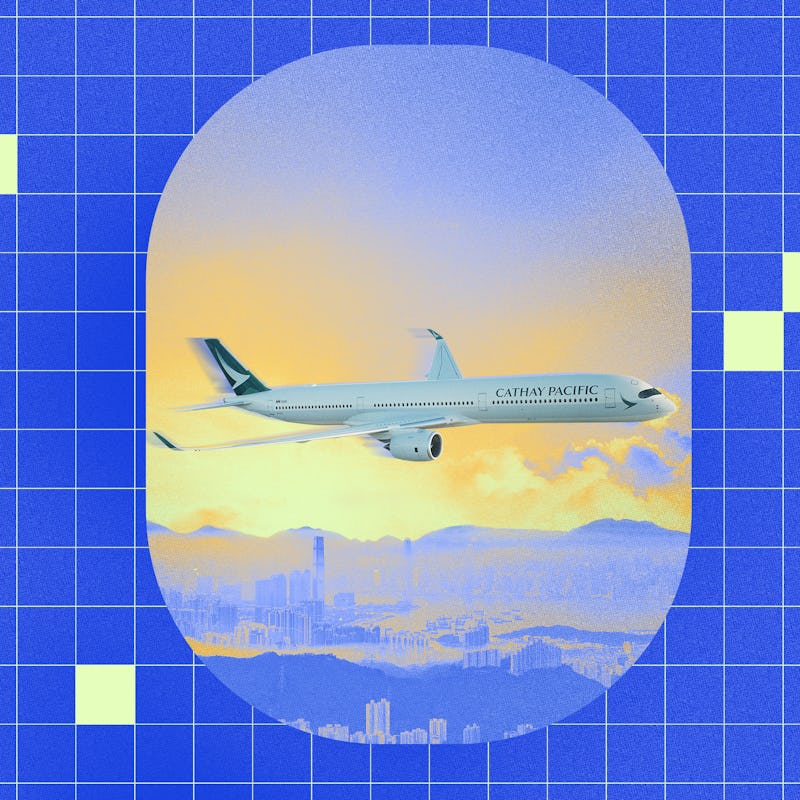Cathay Pacific Is Bringing International Air Travel To The Future
Even the way you order your food is getting a convenient upgrade.

International travel is enriching and valuable, but the time spent getting to where you’re going can feel less so. After all, it takes no shortage of time to fly to popular destinations like Hong Kong, Singapore, or Bali — and historically, airlines haven’t been great at helping you maximize your hours onboard.
But that’s changing. Case in point: Cathay Pacific, an airline that believes no (air) time should be wasted. They know you’ve got things to do, and they’ve developed the amenities (like complimentary wifi for all business class passengers) that let you do them comfortably at 35,000 feet. Click around below to discover some of the airline’s most notable features.
Smart Seat Design
If you’ve ever thought “why do they make it so hard to sleep on planes?,” Cathay Pacific would like a word. Their business class cabins boast fully lie-flat beds complete with adjustable seating and organic linens, intelligent lighting, reduced noise, and even improved levels of cabin pressure that all make for ideal — some might even say futuristic — snoozing conditions.
“Choose My Meal” Feature
The days of deciding on the fly between two mediocre dinner options are over. With Cathay Pacific’s tech-first “Choose My Meal” option, ordering for your inflight meal opens 10 days before departure. So peruse the menu, pick what sounds best to you, and enjoy.
Inflight Entertainment
Seatback screens were first introduced in 1988. We’ve come a long way since then — at least, Cathay Pacific has. The airline boasts the largest entertainment library in Asia Pacific, with over 3,000 hours of entertainment from studios like A24, HBO Max, Disney+, TVB and BBC. No wonder it won the 2023 Skytrax World’s Best Inflight Entertainment Award.
Fly Greener
If a carbon neutral trip is important to you, that means it’s important to Cathay Pacific, too. Through Fly Greener, customers can purchase carbon offsets that reduce or prevent C02 emissions. These go directly to third-party validated projects focused on things like renewable energy.